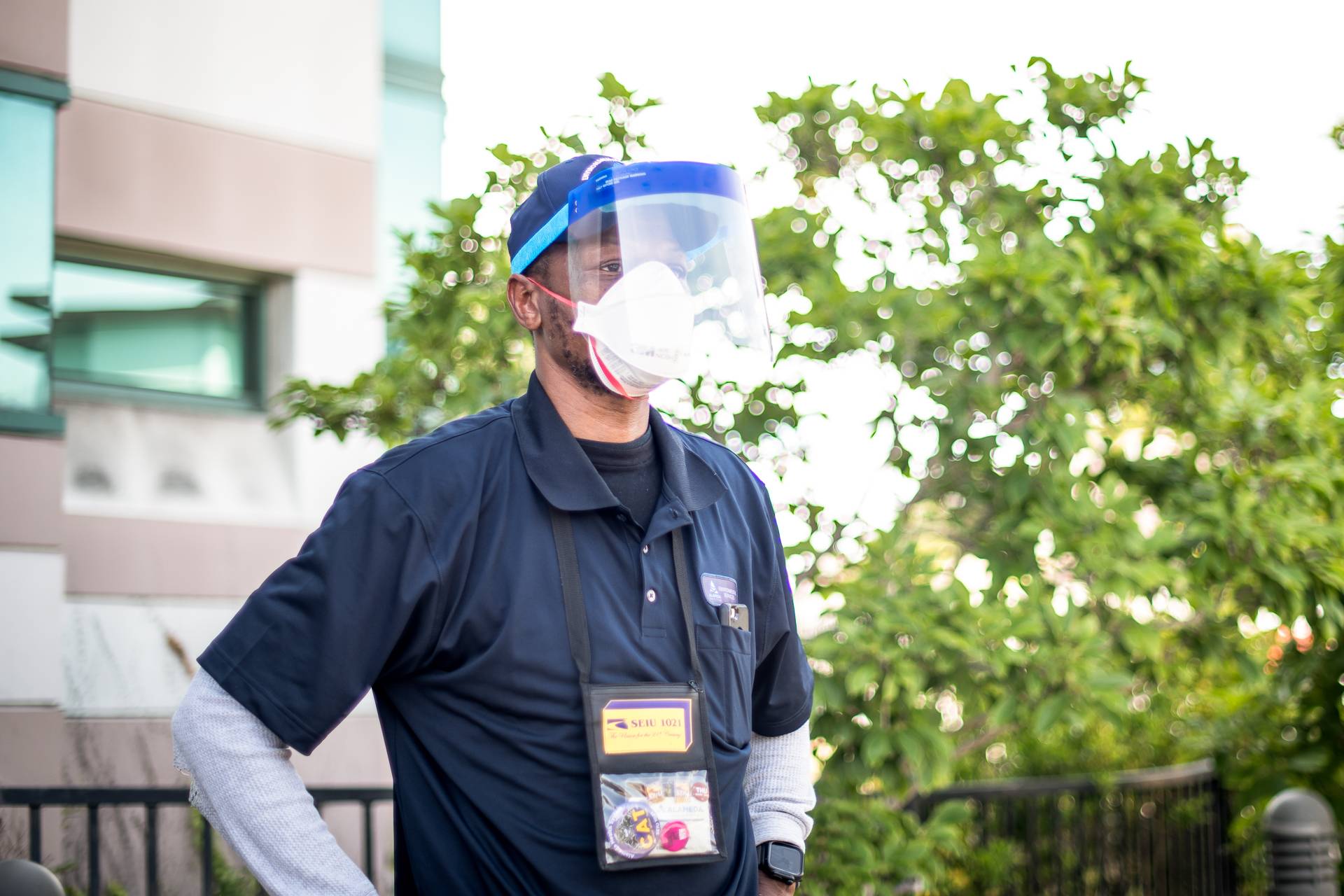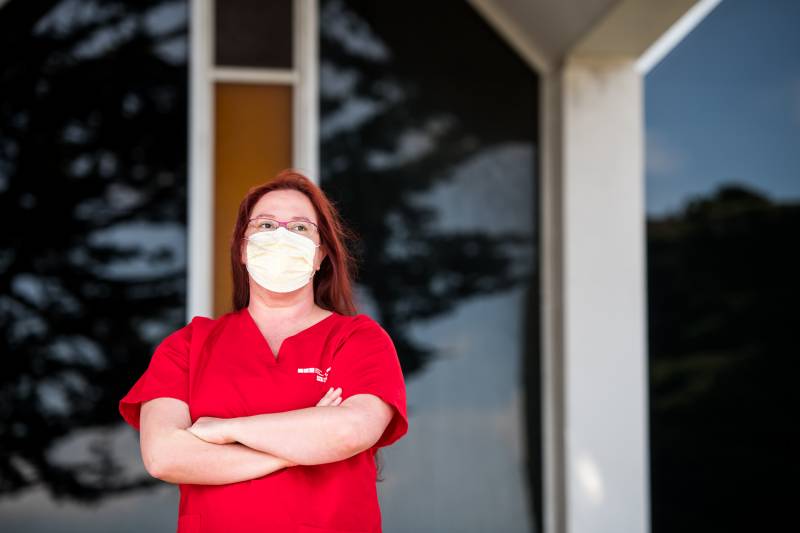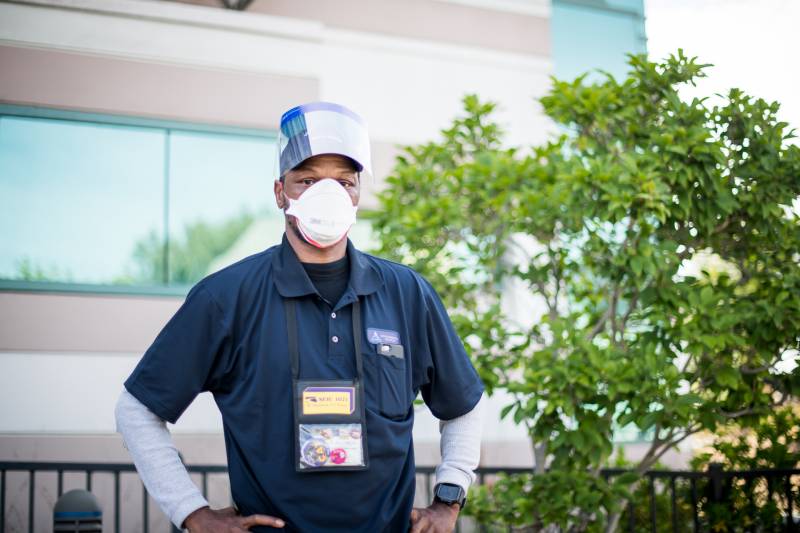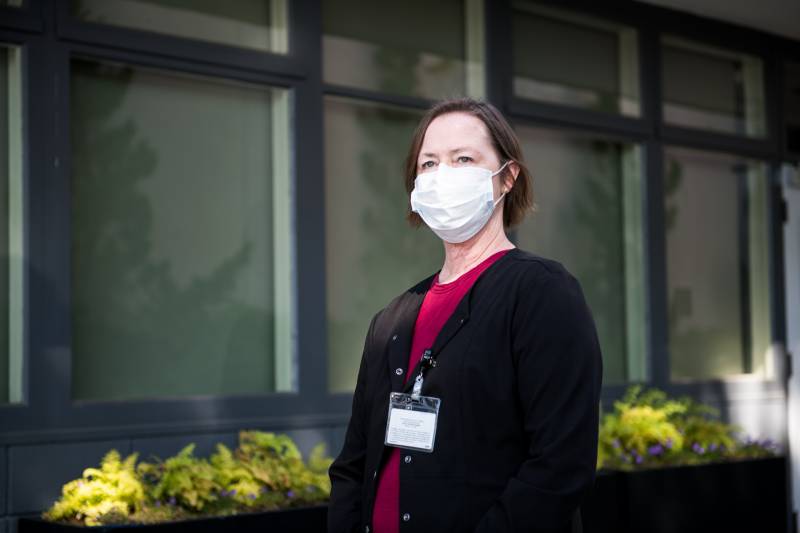From caring for COVID-19 patients to disinfecting hospital rooms to counseling victims of domestic abuse, medical workers are on the front lines of the battle against the coronavirus pandemic.
As they work to help patients across the Bay Area, they're also trying to juggle their own health and safety — and that of their families.
Four medical workers share their stories here — stories of dedication, bravery, teamwork and an ability to adapt to the constantly changing demands of life under COVID-19.
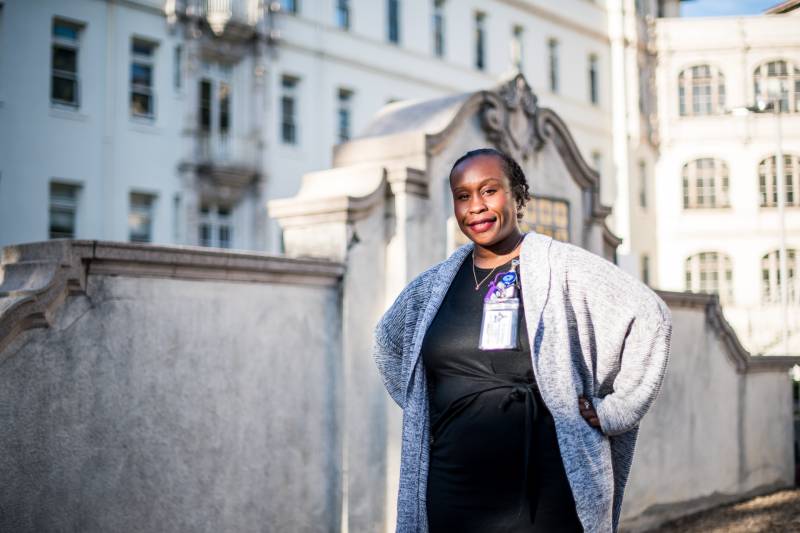
Sheleka Carter, Highland Hospital
Sheleka Carter is a domestic violence advocate at Highland Hospital in Oakland, where she responds to cases in the emergency room that involve domestic violence, sexual assault or human trafficking.
Under the current public health crisis, Carter said she's seen a rise in domestic violence cases.
“There has been a spike in a lot of domestic violence cases that I'm noticing," she said. "A lot of women are coming in, specifically women."
On a typical day, she can spend up to six hours at the bedside of a patient in the emergency department. While many organizations have transitioned to virtual advocacy, she and her team continue in-person visits despite concerns for their health.
Carter said she tries to build a relationship with her patients, make them laugh and get their mind off of what's happened to them. Wearing a face mask to protect against the spread of COVID-19 has made it more difficult to build rapport with patients who have just experienced trauma, Carter said.
"Your face shows your emotions, your expressions," she said. "We have to wear masks. And so it changes the dynamic of the interaction and the intimacy and the compassion of the job as a whole."
But concern can go both ways, Carter said, recalling one woman who was referred to her recently because of a domestic violence situation.
“She was laying in the bed, and I was talking to her, and I had the mask on, and the masks when you wear them ... it makes you feel really hot. So I started sweating,” Carter recalled.
She could see the worry on the face of her patient.
“I mean, she had just gone through her worst day and she was looking at me with concern,” Carter said.
Carter continues to advocate not only for her patients but for her fellow health workers, taking on leadership roles within her union, Service Employees International Union Local 1021. During this time of increased challenges, "everybody's sort of in their trauma response, and I think I'm fighting right now," she said.
